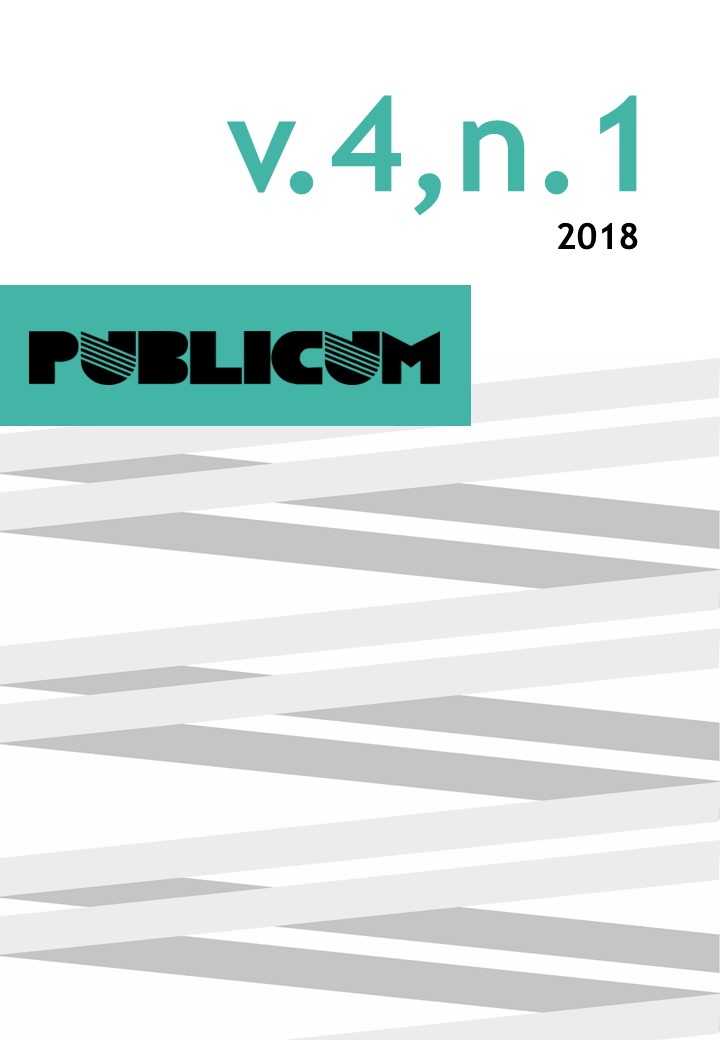Efeitos vinculantes e “erga omnes” em declaração incidental de inconstitucionalidade: mutação constitucional do art. 52, X da Constituição? | Binding and “erga omnes” effects in Incidental Declaration of Unconstitutionality: constitucional mutation of article 52, X of the Brazilian Constitution
DOI:
https://doi.org/10.12957/publicum.2018.32743Palavras-chave:
mutação constitucional, declaração incidental de inconstitucionalidade, efeitos da decisãoResumo
As Constituições, em que pese trazerem sentido de estabilidade, não são imutáveis. Como processo de alteração constitucional formal, tem-se as revisões e reformas, responsáveis por readaptar o texto originário constitucional a uma nova realidade social, política, cultural, ou até mesmo jurídica do Estado. Além desses métodos, possível também a alteração informal do texto constitucional, ou seja, sem sua alteração literal, extrair-se um novo significado em consonância com todo o sistema constitucional e, também, com uma nova realidade vivenciada pela sociedade. No presente trabalho, busca-se uma análise acerca da possível mutação constitucional do art. 52, X da CRFB/88, há muito preconizada pelos constitucionalistas Gilmar Mendes e Lúcio Bittencourt, mas que ganhou relevo com a decisão do STF no último semestre. Num primeiro momento, investigaremos o que é uma mutação constitucional e se há limites para sua existência. A seguir, um estudo acerca da eficácia das decisões em sede de controle difuso de constitucionalidade se faz necessário, pois o art. 52, X, aliado ao entendimento doutrinário dominante, dispõe ser necessária resolução editada pelo Senado para que sejam conferidos efeitos vinculantes e erga omnes a essas decisões. Por último, será feita a análise dos dois importantes julgamentos a respeito do tema para então discorrer se houve ou não mutação, ou ainda, se se trata de uma mutação constitucional ou, possivelmente, inconstitucional.Downloads
Publicado
Como Citar
Edição
Seção
Licença
O autor do trabalho declara conhecer e concordar com as regras a seguir:
1) Realizou o trabalho apresentado à revista, sendo inteiramente responsável pelas ideias e conceitos nele emitidos, que não correspondem, necessariamente, ao ponto de vista dos Editores de Publicum.
2) Obedeceu, na realização do trabalho, os princípios éticos aludidos na política de avaliação da revista[RDN1] .
3) Assume a autoria e a responsabilidade pela obra, declarando que ela não infringe quaisquer direitos de propriedade intelectual de terceiros.
4) Responsabiliza-se, integralmente, por danos de natureza moral ou patrimonial que a veiculação da obra venha a gerar a terceiros.
5) Cede à revista os direitos de reprodução, edição e primeira publicação do trabalho em qualquer meio midiático, em particular sob forma digital, em arquivo eletrônico online na internet.
6) Confere aos Editores o direito de modificar o texto apresentado, sem prejuízo de seu conteúdo, quando necessário para uniformizar a apresentação dos trabalhos e para atender as normas de edição próprias da revista.
7) Concorda com a forma final do trabalho aprovada pela revista.
8) Autoriza a divulgação do trabalho nos canais de comunicação da Faculdade de Direito da UERJ.
9) Concorda com a reprodução de pequenos trechos do trabalho em outras publicações da UERJ.
10) Reconhece que, pela cessão e autorizações acima referidas, não receberá remuneração sob qualquer modalidade, tendo estas o caráter de colaboração científica.
11) Tem ciência de que a publicação do trabalho poderá ser recusada caso não considerada conveniente, por qualquer motivo que seja, sendo que tal recusa não gera responsabilidade e/ou ônus de espécie alguma à revista ou UERJ.
[RDN1]Ver COPE.

Publicum está licenciado com uma Licença Creative Commons Atribuição-NãoComercial 4.0 Internacional.

